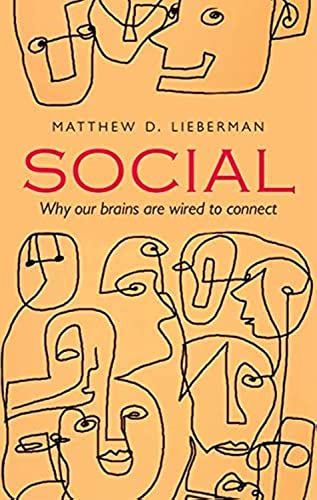
Synopsis
Why are we influenced by the behaviour of complete strangers? Why does the brain register similar pleasure when I perceive something as 'fair' or when I eat chocolate? Why can we be so profoundly hurt by bereavement? What are the evolutionary benefits of these traits? The young discipline of 'social cognitive neuroscience' has been exploring this fascinating interface between brain science and human behaviour since the late 1990s.
Now one of its founding pioneers, Matthew D. Lieberman, presents the discoveries that he and fellow researchers have made. Using fMRI scanning and a range of other techniques, they have been able to see that the brain responds to social pain and pleasure the same way as physical pain and pleasure; and that unbeknown to ourselves, we are constantly 'mindreading' other people so that we can fit in with them. It is clear that our brains are designed respond to and be influenced by others. For good evolutionary reasons, he argues, we are wired to be social.
The implications are numerous and profound. Do we have to rethink what we understand by identity, and free will? How can managers improve the way their teams relate and perform? Could we organize large social institutions in ways that would work far better? And could there be whole new methods of education?
"synopsis" may belong to another edition of this title.
About the Author
Matthew D. Lieberman is Professor at the Social Cognitive Neuroscience Laboratory at the University of California, Los Angeles.
"About this title" may belong to another edition of this title.
Other Popular Editions of the Same Title
Search results for Social: Why our brains are wired to connect
Social: Why our brains are wired to connect
Seller: World of Books (was SecondSale), Montgomery, IL, U.S.A.
Condition: Good. Item in good condition. Textbooks may not include supplemental items i.e. CDs, access codes etc. Seller Inventory # 00062317429
Social: Why our brains are wired to connect
Seller: Zoom Books East, Glendale Heights, IL, U.S.A.
Condition: very_good. Book is in very good condition and may include minimal underlining highlighting. The book can also include "From the library of" labels. May not contain miscellaneous items toys, dvds, etc. . We offer 100% money back guarantee and 24 7 customer service. Seller Inventory # ZEV.0198743815.VG
Social: Why our brains are wired to connect
Seller: WeBuyBooks, Rossendale, LANCS, United Kingdom
Condition: Good. Most items will be dispatched the same or the next working day. A copy that has been read but remains in clean condition. All of the pages are intact and the cover is intact and the spine may show signs of wear. The book may have minor markings which are not specifically mentioned. Seller Inventory # rev9474339069
Social : Why Our Brains Are Wired to Connect
Seller: GreatBookPrices, Columbia, MD, U.S.A.
Condition: As New. Unread book in perfect condition. Seller Inventory # 23318367
Social
Seller: PBShop.store UK, Fairford, GLOS, United Kingdom
PAP. Condition: New. New Book. Shipped from UK. Established seller since 2000. Seller Inventory # FU-9780198743811
Social : Why Our Brains Are Wired to Connect
Seller: GreatBookPrices, Columbia, MD, U.S.A.
Condition: New. Seller Inventory # 23318367-n
Social: Why our brains are wired to connect
Seller: Revaluation Books, Exeter, United Kingdom
Paperback. Condition: Brand New. 384 pages. 7.68x5.67x0.87 inches. In Stock. Seller Inventory # __0198743815
Social: Why our brains are wired to connect
Seller: THE SAINT BOOKSTORE, Southport, United Kingdom
Paperback / softback. Condition: New. New copy - Usually dispatched within 4 working days. 290. Seller Inventory # B9780198743811
Buy New
Quantity: Over 20 available
Social : Why Our Brains Are Wired to Connect
Seller: GreatBookPricesUK, Woodford Green, United Kingdom
Condition: New. Seller Inventory # 23318367-n
Social : Why Our Brains Are Wired to Connect
Seller: GreatBookPricesUK, Woodford Green, United Kingdom
Condition: As New. Unread book in perfect condition. Seller Inventory # 23318367

